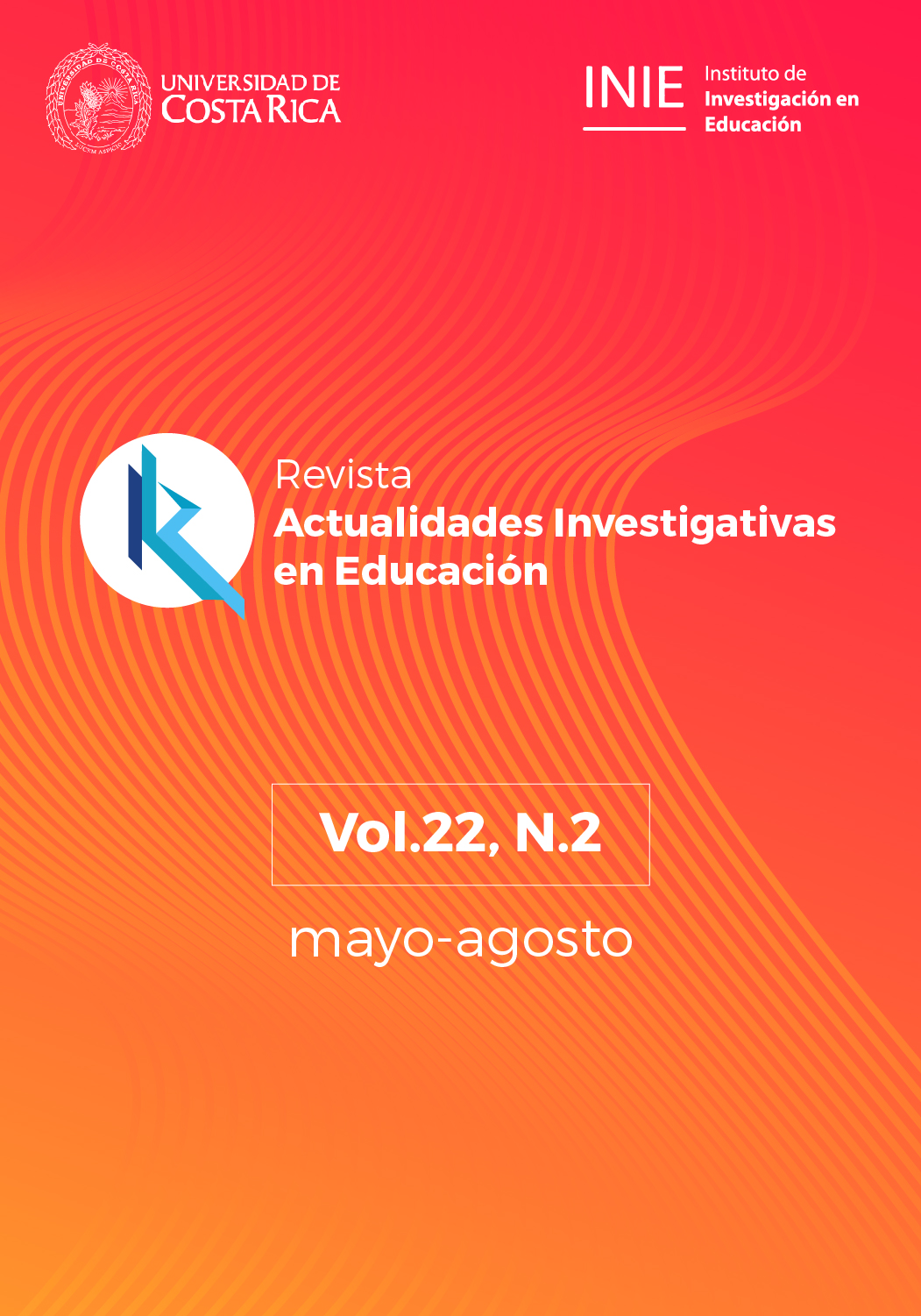Abstract
This article presents the results of the research "Education in values and human rights in the study plans for teachers training at the University of Costa Rica", whose main objective was to analyze the incorporation of education in values and human rights in teacher training curricula. To address the objective the methodology proposed is based on a mixed research method, where questionnaire and focus group were used as information gathering techniques, aimed at students and teachers of education careers. The results show that although various contents on human rights and values are present in the curricula for teacher training, implicitly and explicitly, they must be strengthened. There is an urgent need to include explicit content on values and human rights in teacher training, review curricula, offer specific courses on human rights in careers, train university teachers, mainstream the curriculum with the human rights axis. human and values, promote greater contact of students with the various realities, observations, and practices, and analyze their own behavior on the subject.
References
Agudelo, Elkin. (2015). ¿Quién responde por la formación de los docentes como sujetos de derechos en las facultades de educación? Revista Folios, 41, 103-116. https://www.redalyc.org/pdf/3459/345938641008.pdf
Asamblea General de las Naciones Unidas. (2014). Plan de acción para la tercera etapa (2015-2019) del Programa Mundial para la educación en Derechos Humanos [Informe de la Oficina del Alto Comisionado de las Naciones]. https://www.ohchr.org/es/publications/human-rights-education-series/plan-action-third-phase-world-programme-human-rights
Di Bernardi, G., Fariña, M., Klainer, R., Salvioli, F. y Zibercchi, C. (2007). Derechos Humanos y Ciudadanía (Serie Perspectivas). Santillana.
Hernández, R., Fernández, C., y Baptista, P. (2010). Metodología de la Investigación. McGraw Hill.
Instituto Interamericano de Derechos Humanos [IIDH] y Organización de las Naciones Unidas para la Educación, la Ciencia y la Cultura [UNESCO]. (1994). Educación en derechos humanos. Texto autoformativo. IIDH; UNESCO. https://www.iidh.ed.cr/IIDH/media/1928/educacion-en-ddhh-texto-autoformativo-1994.pdf
Organización de las Naciones Unidas para la Educación, la Ciencia y la Cultura (UNESCO). (2003). Educación para los Derechos Humanos. https://unesdoc.unesco.org/ark:/48223/pf0000131836_spa
Organización de las Naciones Unidas para la Educación, la Ciencia y la Cultura (UNESCO). (2012). Programa Mundial para la educación en Derechos Humanos. Segunda etapa. Plan de acción. https://www.ohchr.org/sites/default/files/Documents/Publications/WPHRE_Phase_2_sp.pdf
Organización de las Naciones Unidas (ONU). (s.f.) Derechos humanos. https://www.un.org/es/global-issues/human-rights
Rodino, Ana. (2015). Educación en derechos humanos para una ciudadanía de democracia. Editorial EUNED.
Sanjurjo, Liliana. (2009). Educar en derechos humanos: un reto para la formación y profesionalización docente. En José Antonio Caride (Coord.), Los derechos humanos en la educación y la cultura. El discurso político a las prácticas educativas (pp. 105-135). OREALC/UNESCO.
Unión Parlamentaria y Oficina del Alto Comisionado de las Naciones Unidas para los Derechos Humanos. (2017). ¿Qué son los derechos humanos? En Derechos Humanos (pp. 19-32; Manual para parlamentarios N° 26). https://www.ohchr.org/Documents/Publications/HandbookParliamentarians_SP.pdf







